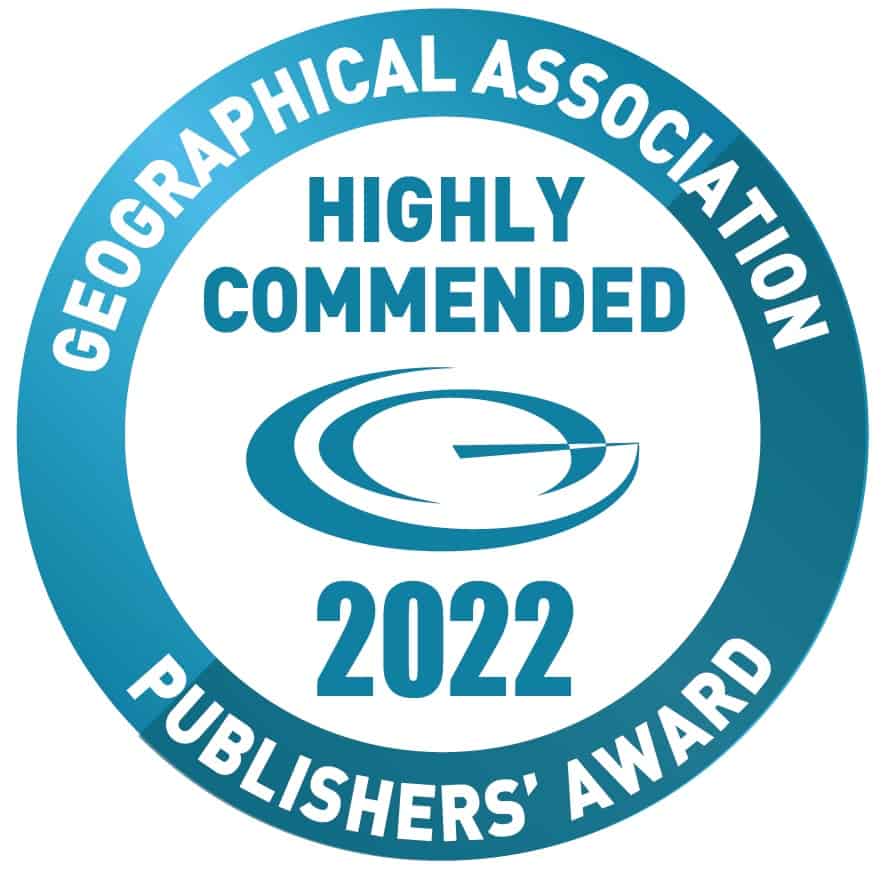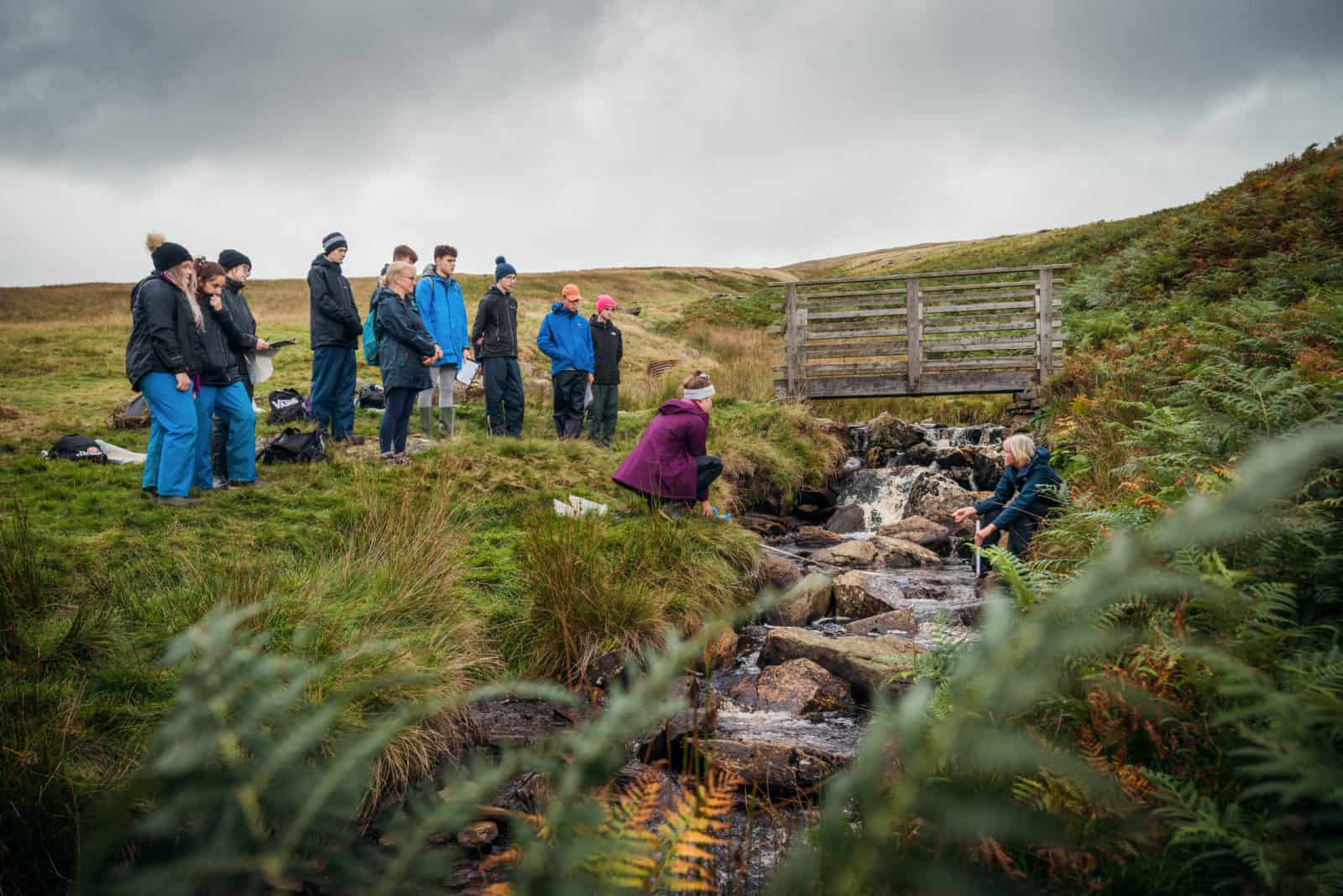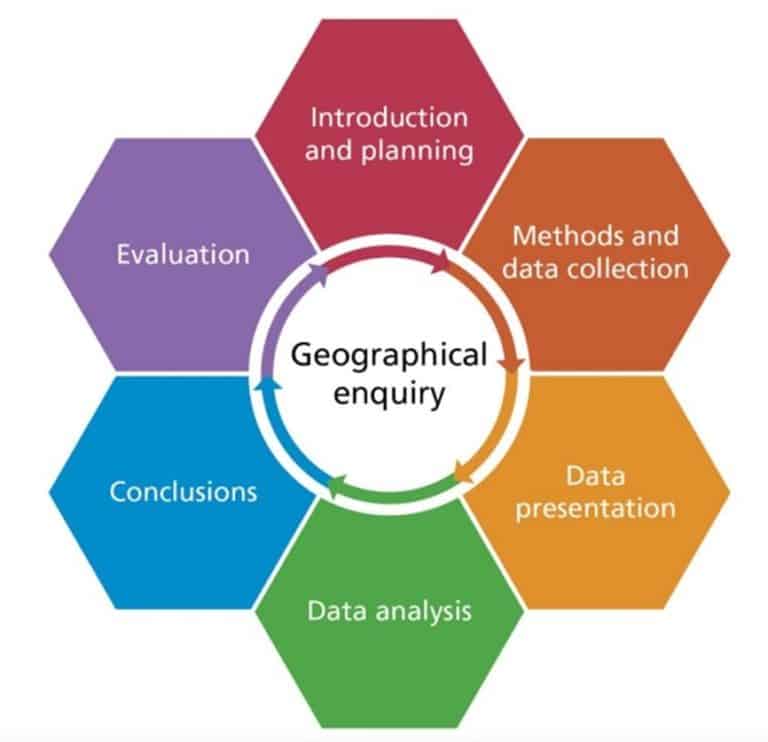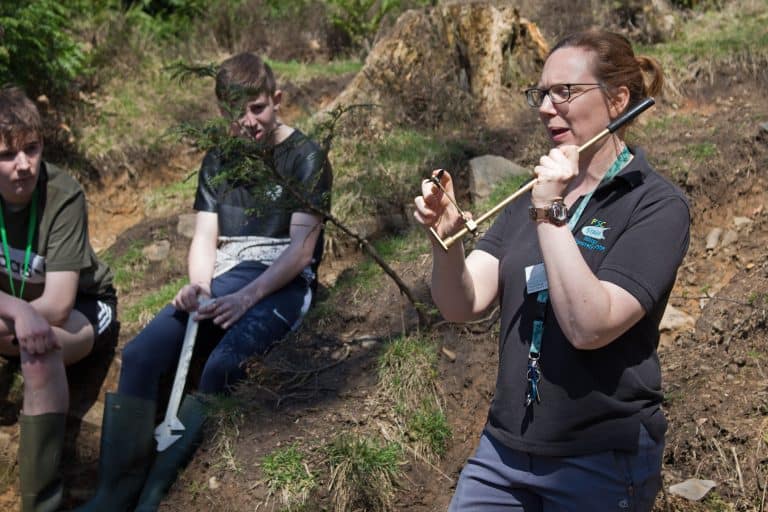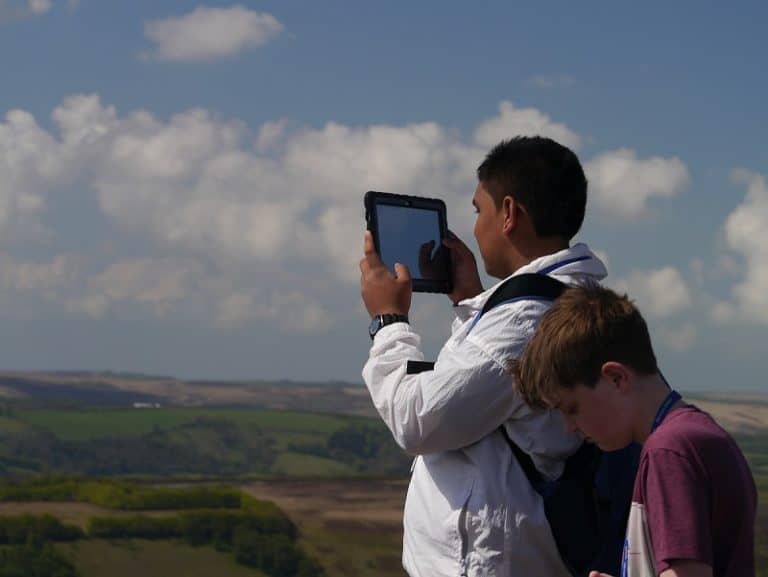Field Studies Council is a leading provider of geography fieldwork.
The geography fieldwork courses at our UK centres are tailored to curriculum requirements for GCSE, A Level, National, Higher, IB and lower secondary specifications and packed with relevant fieldwork content.
Our expert tutors create and deliver geography experiences to suit your requirements.
Environments at our centres
Our residentials can include a selection of environments to suit your requirements.
14-16:
Students are required to undertake two days of investigations as part of the GCSE specifications in contrasting environments -physical and human. Our residential courses can include a selection of environments to suit your requirements.
Rivers
Develop your fieldwork skills using quantitative and qualitative methods by studying a river local to one of our centres. Investigate how and how why river characteristics change as you go down stream. Explore the interactions between human and physical influences in impacting river environments and river discharge.
Enhance your understanding by looking at erosion, transportation, deposition and sub aerial processes in action impacting upon the landscape and creating the UK’s distinctive landscapes.
Coastal
Develop your fieldwork skills using quantitative and qualitative methods by studying a coastal environment local to one of our centres. Investigate how and why beach profile and sediment characteristics (size and shape) vary along a stretch of the coastline. Explore the interactions between human and physical factors in impacting coastal environments and the decisions required to support future management strategies.
Enhance your understanding by looking at coastal processes in action impacting upon the landscape and creating the UK’s distinctive landscapes.
Urban
Develop your fieldwork skills using quantitative and qualitative methods by studying a dynamic urban environment local to one of our centres. According to your chosen exam specification requirements investigate this rapidly changing landscape by studying the changing quality of life across a city, the impacts of regeneration on local populations or assessing the degree to which urban environments can be considered sustainable.
Explore the interactions between social, economic, environmental factors influencing the urban environment. Bring key processes to life and consider the challenges that these and the rapid pace of change will have upon the UK’s urban landscape today and in the future.
Rural
Develop your fieldwork skills using quantitative and qualitative methods by studying rural environment local to one of our centres. According to your chosen exam specification requirements investigate this changing landscape by studying the impacts of changing processes upon the people and landscape of rural areas.
Explore the interactions between social, economic, environmental factors influencing the rural environment. Bring key processes to life such as counter-urbanisation and consider the challenges that these and the rapid pace of change will have upon the UK’s rural landscape today and in the future.
Glaciation
Develop your fieldwork skills using quantitative and qualitative methods by studying a glaciated landscape local to one of our centres. Investigate how processes such as erosion, transportation, deposition and sub aerial processes have created some of the UK’s most distinctive landscape. How does this landscape influence its use today?
Enhance your understanding in identifying glaciated landforms and applying key processes whilst working through the geographical route to enquiry.
16-18:
Fieldwork experiences can support the delivery of the curriculum and enhance a range of fieldwork skills in the build up to any independent investigation or Non-Examined Assessment (NEA). Our residential courses can include a selection of environments to suit your requirements.
Coastal
investigate this dynamic landscape and case study to gain detailed knowledge of the processes, systems and factors that influence the landforms of the coastal landscape.
Explore the interactions between human and physical factors in impacting coastal environments and the decisions required to support shoreline management plans.
Develop your skills by using a range of methods (quantitative & qualitative) and data (primary and secondary) whilst exploring the route to enquiry.
Enhance student confidence and thinking skills to support question setting and methodologies as part of an independent investigation.
Inequalities
Investigate a place local to the centre to gain detailed knowledge of the complex geographical processes that are changing the UK’s urban or rural locations. Enhance your case study knowledge and recognise the impacts of these changes upon communities.
Explore the social, economic and environmental inequalities that are suffered by different members of our communities and the need for sustainable management projects. or shoreline management plans.
Develop your skills by using a range of methods (quantitative & qualitative) and data (primary and secondary) whilst exploring the route to enquiry.
Enhance student confidence and thinking skills to support question setting and methodologies as part of an independent investigation.
Regeneration
Investigate a place local to the centre to gain detailed knowledge of the complex processes that are interacting to turn areas into sustainable, desirable and effective spaces for us to use and enjoy.
Enhance your case study knowledge and recognise the impacts of these changes upon communities and consider the interlinked geographies that shape the locations regeneration journey.
Develop your skills by using a range of methods (quantitative & qualitative) and data (primary and secondary) whilst exploring the route to enquiry.
Enhance student confidence and thinking skills to support question setting and methodologies as part of an independent investigation.
Place
Creswell (2008) defined place within geography as a ‘meaningful segment of geographical space’. Exploring a location close to the centre, the concept of place and its importance within geography through experiential fieldwork methods will be explored.
Enhance your case study knowledge by considering the concept of place and how this can be perceived by different groups, influenced by geographical processes of social and or economic change, and the relationships and connections that exist both past and present between people and place.
Develop your skills by using a range of experiential methods (quantitative & qualitative) and data (primary and secondary) whilst exploring the route to enquiry.
Enhance student confidence and thinking skills to support question setting and methodologies as part of an independent investigation.
Carbon:
Learners will engage in landscape-scale carbon experiments close to the centre. Reinforcing and applying the concepts of the carbon cycle, students will consider the inputs, processes, stores and outputs of the system investigating the impact that land use has on carbon sequestration rates.
Using a range of methodologies, it will connect the learners thinking with the role of anthropogenic induced carbon imbalance as a key component of current and future climate change, and carbon sequestration as a form of climate change mitigation.
Enhance student confidence and thinking skills to support question setting and methodologies as part of an independent investigation.
Water
Explore the components of the hydrological cycle within a catchment close to a centre. Reinforcing and applying the concepts of the water cycle, students will consider the various inputs, processes, stores, and outputs of the system. Investigating the relationship between the characteristics of the drainage basin and inputs, processes, stores and outputs that take operate within the local landscape.
Develop your skills by using a range of methods (quantitative & qualitative) and data (primary and secondary) whilst exploring the route to enquiry.
Enhance student confidence and thinking skills to support question setting and methodologies as part of an independent investigation.
Glaciation
investigate a glaciated landscape close to one of our centres to gain a detailed knowledge of the processes, systems and factors that influence the landforms of a glaciated landscape both past and present.
Develop your skills by using a range of methods (quantitative & qualitative) and data (primary and secondary) whilst exploring the route to enquiry.
Enhance student confidence and thinking skills to support question setting and methodologies as part of an independent investigation.
A personalised approach
- Courses link specifically to the curriculum and content can be tailored to suit your requirements
- A qualified tutor is assigned to each trip, to oversee your visit and create a bespoke friendly atmosphere
- Choice of UK centres so you can pick the best location for your school trip
- Accommodation on residential trips is in comfortable centres of up to 150 beds, allowing us to offer a personalised service
- All food is provided on school residential trips and many course activities are based on site
Tried and trusted provider
- We have 75 years’ experience delivering secondary school trips
- Each year, 165,000 people visit our centres
- All our centres have the Learning Outside the Classroom’s Quality Badge so there is less paperwork for you
- Outdoor learning with us helps deliver a broad and balanced curriculum as required by Ofsted
